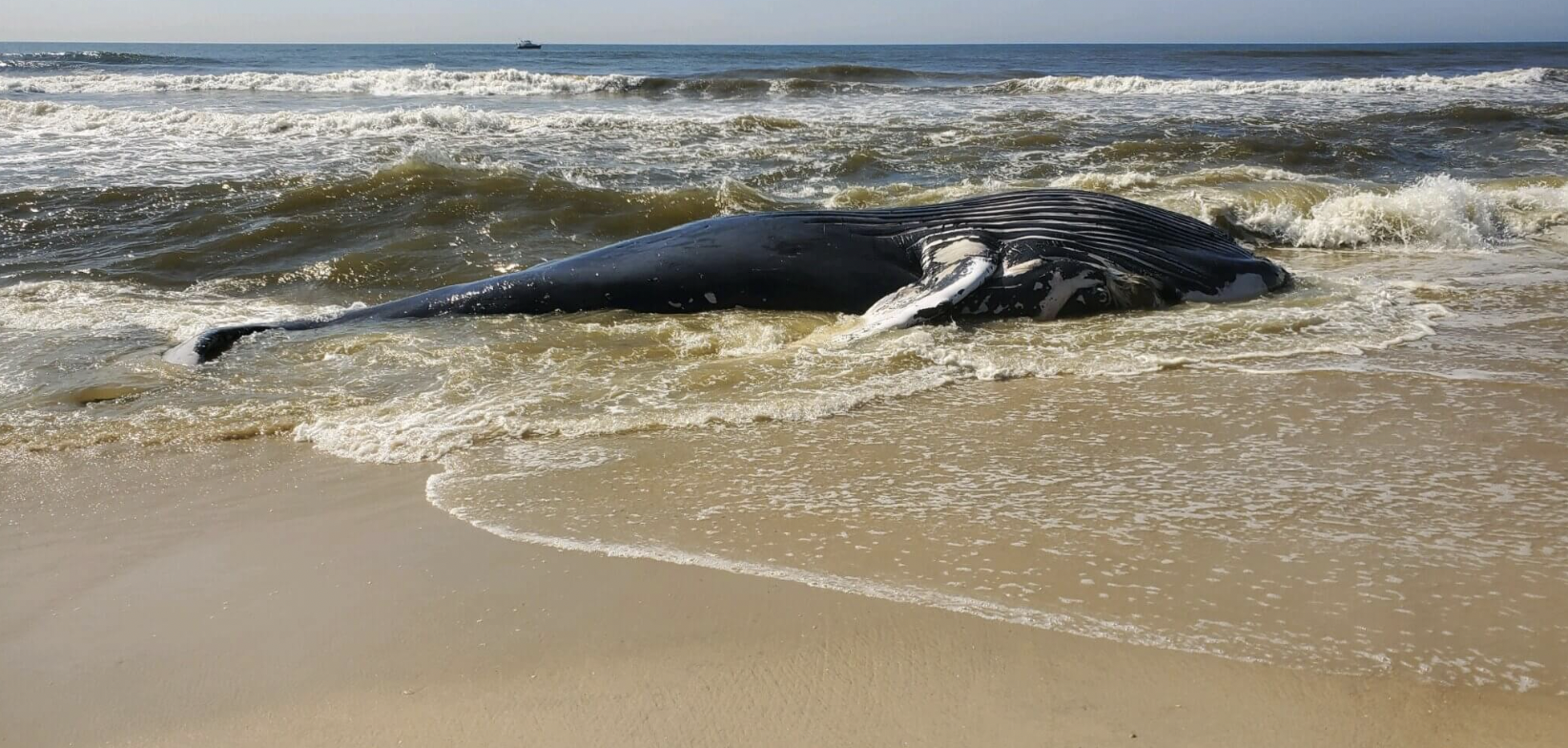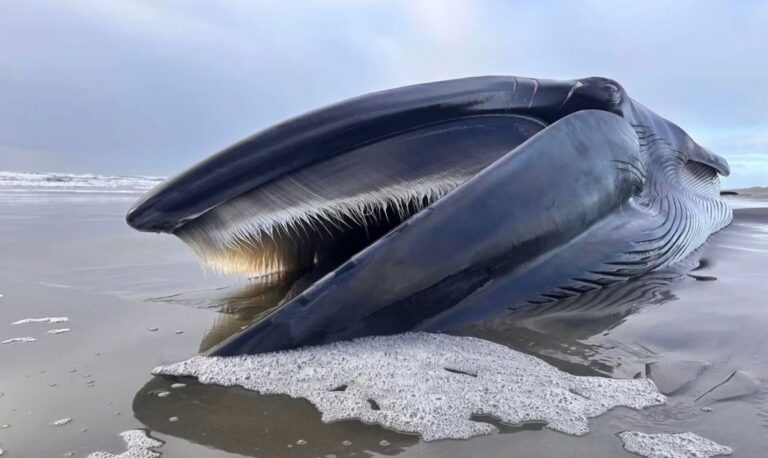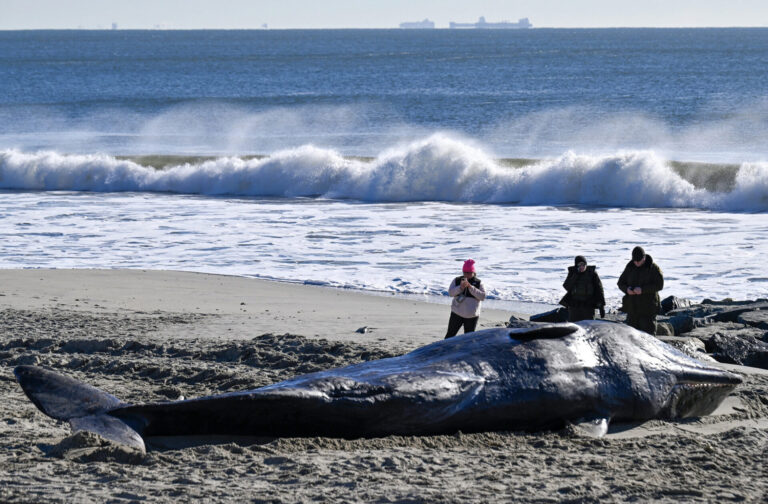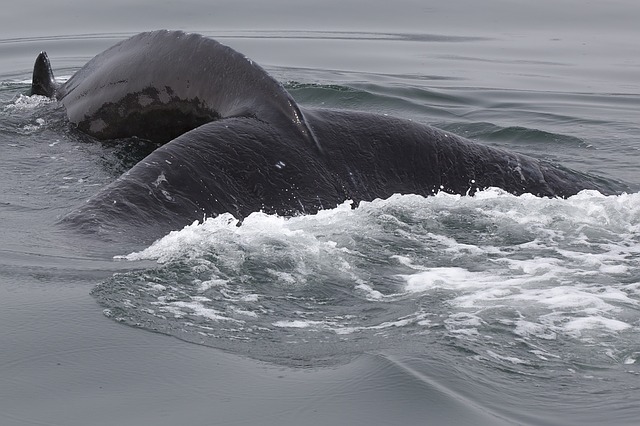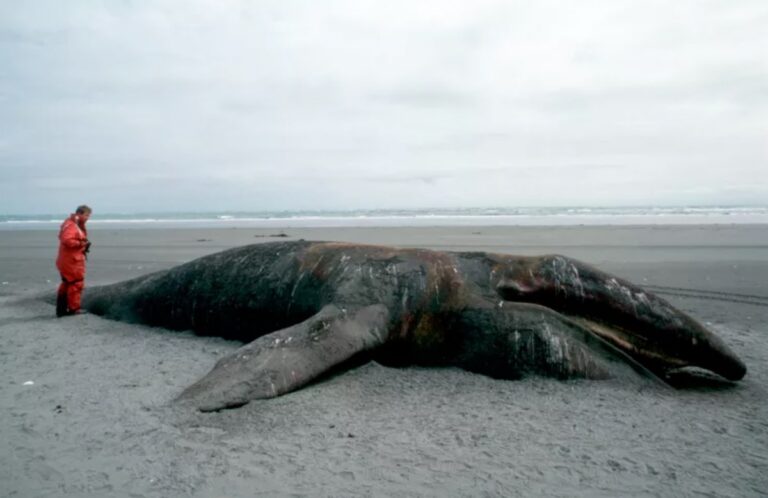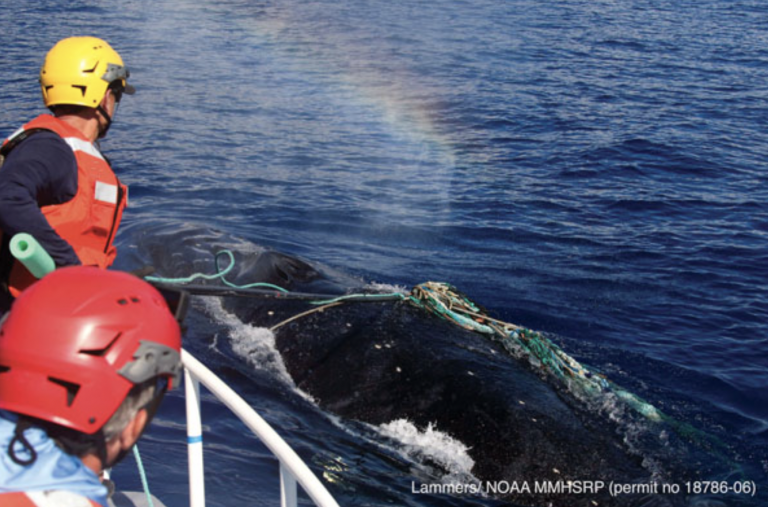Humpback Whale Washed Up On Fire Island
On Friday morning, a humpback whale washed up on Fire Island, Sams Point Beach. The 30-foot humpback whale was found dead by beach goers, on its back, exposing its underbelly stripes. Sadly, this is not the first dead whale that washed ashore this year on Long Island.
In January, a humpback whale washed ashore on Lido Beach. On May 19, 2023 another humpback whale washed ashore on Robert Moses State Park Field 5. The Sams Point Beach whale is the thirteenth whale to wash ashore the tri-state area.
The whale is being investigated by AMSEAS, NOAA Fisheries, the New York State Department of Environmental Conservation. The Suffolk County Parks is also investigating the death and secured the whale for a necropsy. The estimated five year old male was most likely a casualty of a boating accident.
Atlantic Marine Conservation Society Chief Scientist and Executive Director Rob DiGiovanni Jr. said, “We are currently in the middle of an unusual mortality event for three species of large whales – the humpback whale, the right whale, as well as the minke whale.” Before a necropsy was performed, the group worked with Shinnecock and the Unkachugs to perform a ceremony. This special ceremony was done to celebrate the sprit of the majestic animal.
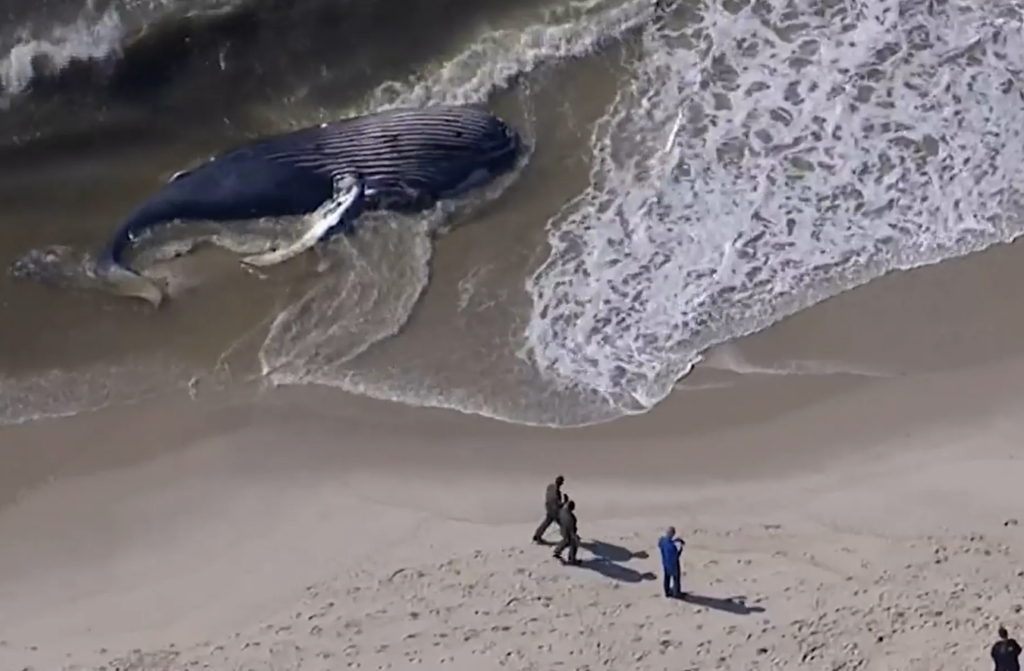
Dead Whales on East Coast in 2023
A day after the humpback whale washed up on Fire Island, another dead whale was found in New Jersey. The whale at Takanassee Beach is said to be a juvenile.
According to National Oceanic and Atmospheric Administration, 29 humpback whales have stranded on the East Coast just this year. Eight, which include Saturday’s whale, were in New Jersey. Virginia, New York and Massachusetts all recorded six dead whales in the past eight months.
According to NOAA, our of all the performed necropsy, 40% of whales “had evidence of human interaction, either ship strike or entanglement.” Others believe that the increase in whale deaths is due to noise of offshore wind energy development. The NOAA says there is no scientific evidence to support this theory.

